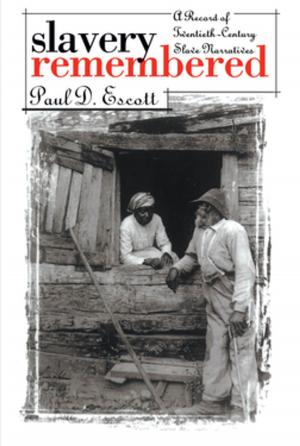Epistolary Practices
Letter Writing in America before Telecommunications
Fiction & Literature, Literary Theory & Criticism, American, Nonfiction, History, Americas, United States, 19th Century, Reference & Language, Language Arts| Author: | William Merrill Decker | ISBN: | 9780807866634 |
| Publisher: | The University of North Carolina Press | Publication: | November 9, 2000 |
| Imprint: | The University of North Carolina Press | Language: | English |
| Author: | William Merrill Decker |
| ISBN: | 9780807866634 |
| Publisher: | The University of North Carolina Press |
| Publication: | November 9, 2000 |
| Imprint: | The University of North Carolina Press |
| Language: | English |
Letters have long been read as primary sources for biography and
history, but their performative, fictive, and textual dimensions
have only recently attracted serious notice. In this book, William Merrill Decker examines the place of the personal letter in American popular and literary culture from the colonial to the
postmodern period.
After offering an overview of the genre, Decker explores epistolary practices that coincide with American experiences of
space, settlement, separation, and reunion. He discusses letters
written by such well-known and well-educated persons as John
Winthrop, Benjamin Franklin, Thomas Jefferson, Abigail and John
Adams, Nathaniel Hawthorne, Margaret Fuller, Henry David Thoreau, Samuel Clemens, Henry James, and Alice James, but also letters by persons who, except in their correspondence, were not writers at all: indentured servants, New England factory workers, slaves, soldiers, and Western pioneers. Individual chapters explore the letter writing of Ralph Waldo Emerson, Emily Dickinson, and Henry Adams--three of America's most ambitious, accomplished, and theoretically astute letter writers. Finally, Decker considers the ongoing transformation of letter writing in the electronic age.
Letters have long been read as primary sources for biography and
history, but their performative, fictive, and textual dimensions
have only recently attracted serious notice. In this book, William Merrill Decker examines the place of the personal letter in American popular and literary culture from the colonial to the
postmodern period.
After offering an overview of the genre, Decker explores epistolary practices that coincide with American experiences of
space, settlement, separation, and reunion. He discusses letters
written by such well-known and well-educated persons as John
Winthrop, Benjamin Franklin, Thomas Jefferson, Abigail and John
Adams, Nathaniel Hawthorne, Margaret Fuller, Henry David Thoreau, Samuel Clemens, Henry James, and Alice James, but also letters by persons who, except in their correspondence, were not writers at all: indentured servants, New England factory workers, slaves, soldiers, and Western pioneers. Individual chapters explore the letter writing of Ralph Waldo Emerson, Emily Dickinson, and Henry Adams--three of America's most ambitious, accomplished, and theoretically astute letter writers. Finally, Decker considers the ongoing transformation of letter writing in the electronic age.















